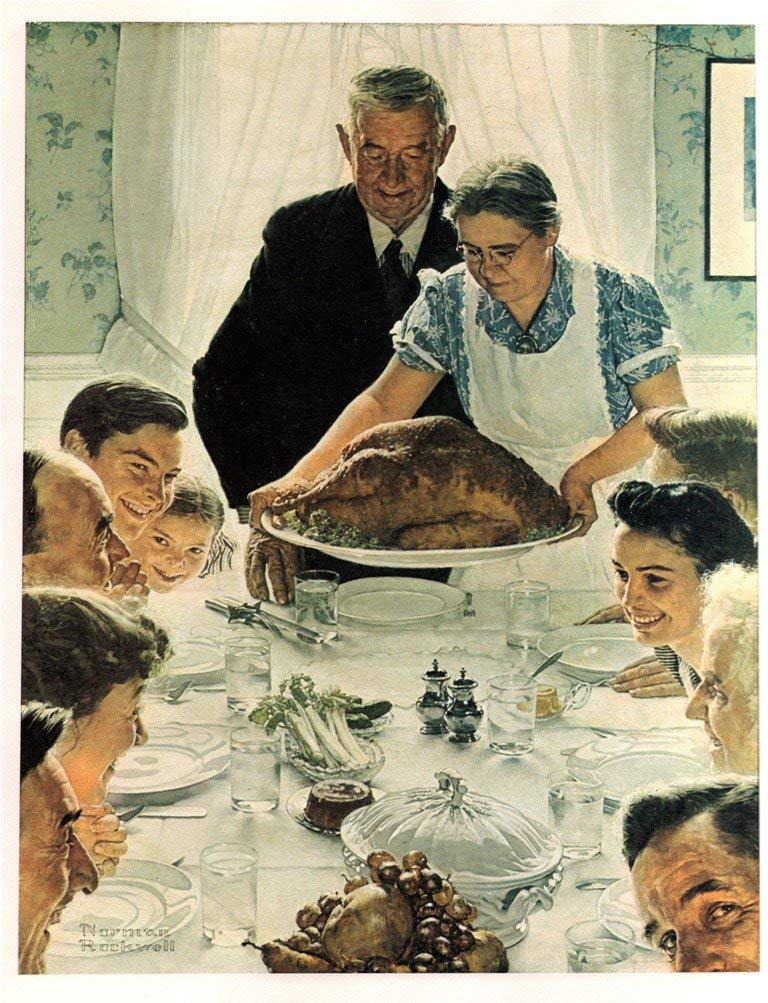In my previous post I introduced the idea that the Christian perception of the ideal family is the nuclear family, “a two-parent nuclear family, with one or two kids, probably living in some detached family home on some suburban street.”. It is my belief that perception has become an unhealthy reality which shapes ministry and outreach. A brief synopsis of the current state of family in our society from “The Nuclear Family was a Mistake” illustrated the stark contrast of a nostalgic perception of nuclear family to today’s reality.
This post will examine some implications of maintaining a perception of nuclear family as reality. It is not my purpose to demean the nuclear family, nor did I understand Brooks intent as such, despite his unfortunate title. I am saying it is a mistake to believe the nuclear family is reality. To do so is analogous to insisting that Blockbuster is an effective business model.
As the social structures that support the family have decayed, the debate about it has taken on a mythical quality. Social conservatives insist that we can bring the nuclear family back. But the conditions that made for stable nuclear families in the 1950s are never returning. Conservatives have nothing to say to the kid whose dad has split, whose mom has had three other kids with different dads; “go live in a nuclear family” is really not relevant advice. If only a minority of households are traditional nuclear families, that means the majority are something else: single parents, never-married parents, blended families, grandparent-headed families, serial partnerships, and so on. Conservative ideas have not caught up with this reality.
David Brooks
The core values of nuclear family are virtually undisputed as essential to a healthy society. As a result, in particular, Christians, properly concerned about attacks on marriage and traditional families have made the mistake of doubling down on the idea of a nuclear family as inviolable. However, even proponents of the sanctity of nuclear families recognize the problem: To be sure, the isolated nuclear family detached from all social support is simply not workable for most people. *
For Christians the nuclear family is a sacred cow, “which must be solicitously guarded so that it can die its agonizing death without any interference.” I reserve an opportunity to offer a eulogy for the nuclear family, but it is important to recognize and address the impacts of living under an illusion that somehow the nuclear family glory days can be restored.
Here are some thoughts I have regarding implications for churches holding the idealized nuclear family inviolable:
- When Christians insist the nuclear family is the ideal necessary to redeem the family and cure our social ills, there are some significant unintended consequences.
“You can ignore reality, but you can’t ignore the consequences of ignoring reality.” (Ayn Rand) - It is important to distinguish between a priority for God’s created order of a monogamous family pattern and the imposition of an idealized nuclear family cultural phenomenon. Jesus’ teaching on the Sabbath may be instructive in that regard.
- Imposing the idealized nuclear family as the model for Christian families inherently impedes outreach and diversity and gentrifies congregations. As Brooks’ article pointed out, “…In 1970, the family structures of the rich and poor did not differ that greatly. Now there is a chasm between them. As of 2005, 85 percent of children born to upper-middle-class families were living with both biological parents when the mom was 40. Among working-class families, only 30 percent were. “It is the privileged Americans who are marrying, and marrying helps them stay privileged.”
As the income gap in our society increases, the possibility of a successful nuclear family will continue to diminish except for the privileged.
For many people, especially those with financial and social resources, it is a great way to live and raise children. - Inherent child rearing philosophies of a nuclear family conflict with the ethos of Christ’s community. “People who grow up in a nuclear family tend to have a more individualistic mind-set than people who grow up in a multigenerational extended clan. People with an individualistic mind-set tend to be less willing to sacrifice self for the sake of the family, and the result is more family disruption.”
Our culture is oddly stuck. We want stability and rootedness, but also mobility, dynamic capitalism, and the liberty to adopt the lifestyle we choose. We want close families, but not the legal, cultural, and sociological constraints that made them possible.
My own experience as a father of a nuclear family illustrates the problem. My priority in raising my children, particularly sons, was for them to be independent, self-sufficient and depart the family to build their own nuclear family. Little did I realize that success would not allow for the fulfillment of dreams for extended family experiences.
At this point, I have no answers, only questions. I am intrigued by Brooks’ thoughts on forged families and will discuss them in another post. I am even more convinced of the importance of rethinking churches’ assumptions about family.
When we discuss the problems confronting the country, we don’t talk about family enough. It feels too judgmental. Too uncomfortable. Maybe even too religious. But the blunt fact is that the nuclear family has been crumbling in slow motion for decades, and many of our other problems—with education, mental health, addiction, the quality of the labor force—stem from that crumbling. We’ve left behind the nuclear-family paradigm of 1955. For most people it’s not coming back.
The Nuclear Family was a Mistake
Here is some positive news in the midst of distressing realities.
https://frenchpress.thedispatch.com/p/is-the-worst-of-the-sexual-revolution

